Did You Know Our Seeds Are Tested in Our Lab?
17 November 2024Our seeds are tested in our fully equipped lab, by qualified analysts for germination, purity and vigour. This is so we can be sure that all our seeds are of the highest quality.
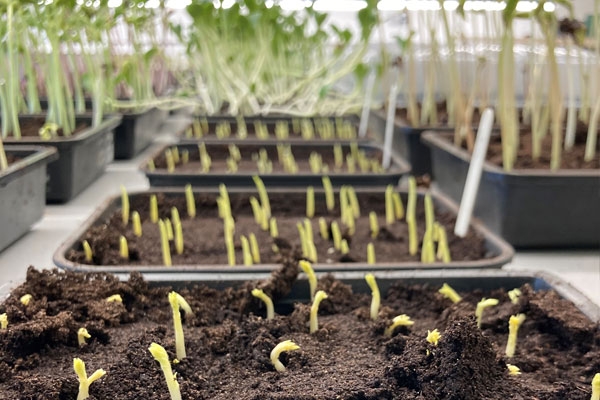
Read More
Allotment Newcomer Tips & Advice
17 November 2024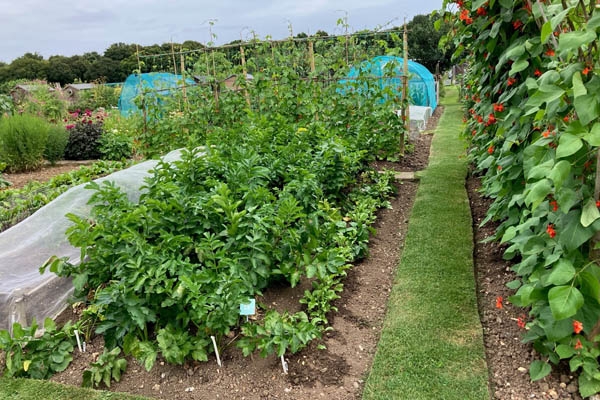
Taking on an allotment should be a rewarding challenge, giving you the opportunity to grow your own fruit and vegetables and is a great way to meet fellow plot holders where you can share and learn growing techniques and tips from one another.
Read More
Andrew Tokely's Gardening Tips for November
11 November 2024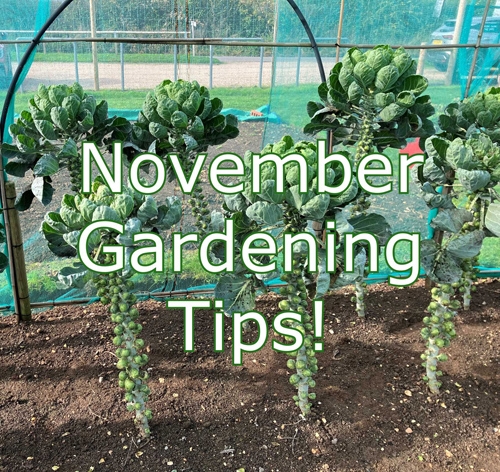
November, I think, is always a good month to tidy up gardens and vegetable plots and use the long dark evenings to plan for next year.
Read More
Andrew Tokely's Gardening Tips for November
01 November 2024November, I think, is always a good month to tidy up gardens and vegetable plots and use the long dark evenings to plan for next year.
Read More
Andrew Tokely's Gardening Tips for October
15 October 2024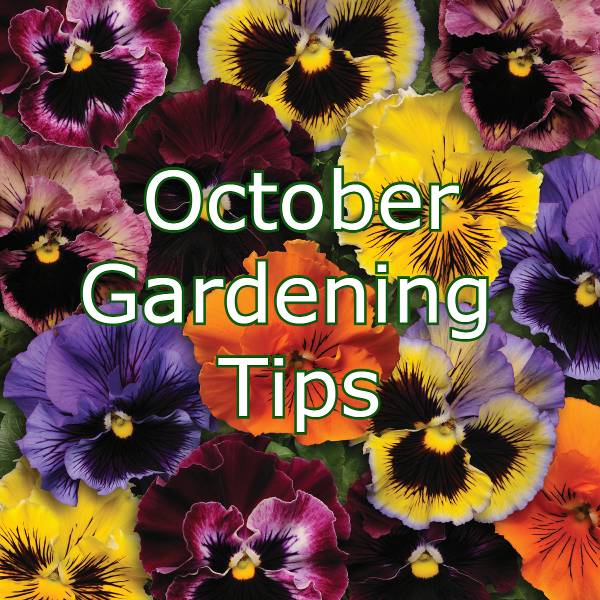
October has arrived, so have longer evenings and cooler temperatures, but there are still plenty of jobs to do in preparation for winter and to plan for next years crops.
Read More
Andrew Tokely's Gardening Tips for October
01 October 2024October has arrived, so have longer evenings and cooler temperatures, but there are still plenty of jobs to do in preparation for winter and to plan for next years crops.
- Once crops in Greenhouses or polytunnels finish, clear them out of the way. Then spend some time washing down the glass / polythene so you have a clean start before adding overwinter crops. Add a little disinfectant like Jeyes fluid to the water. Make sure all areas are scrubbed, this will kill off any bugs or diseases and clean the Glass / polythene so more light is available for winter spring crops over the dull winter months.
- Before the weather turns too cold and frosty, it is wise to check that greenhouse heaters are working properly, or if you heat by Paraffin, check you have some standing by, and your wicks are clean, so you don’t get caught out if a frosty evening is forecast.
- October is the ideal month to tidy up Vegetable plots, taking down old bean canes and nets and storing away for next year. Crops that have finished can be pulled up and added to compost heaps and chopped up small to make future compost for your soil. I like to quickly run a hoe through any spare ground so any weeds are removed. I find it much easier winter digging a clean plot than one that is full of weeds. Order some manure or Mushroom compost to be delivered or empty compost bins and spread on soil ready for winter digging over the winter months.
- Autumn Onion Sets like Senshyu Yellow can be planted this month. These are fully hardy and will happily grow throughout the winter and reward you with an early crop of Onions to harvest in June next year. These come in handy as they are ready just as your stored onions from this year are coming to an end.
- This month usually signals the end of those few last summer bedding annuals growing both in borders and containers, as the plants are usually starting to look shabby by now. But don’t leave your borders or containers empty as it is the ideal time to pull these plants out, Fork over flower beds and replace them with some Winter flowering Pansies, small flowered Violas, Wallflowers, Bellis, Forget-me-Nots or Spring flowering bulbs like Daffodils, Tulips or Crocus so you have colour into next spring.
- If you have a herb garden or containers with herbs in, it is time for a tidy up. Annual herbs that have run to seed should be pulled up and discarded. Perennial herbs like mint can be cut back hard, which will encourage new growth next spring. Evergreen Herbs like Thyme or Bay should have their seedpods and spent flowers removed, by simply giving them a trim with a pair of shears.
- I always think that October is the best time to sow Sweet Pea seeds. If sown in autumn, you will get stronger plants that will flower earlier next spring. Another benefit of sowing at this time of year is you do not need a glasshouse or a heated propagator to obtain successful germination. All you need is a cold frame, or cloche to place your sown seeds under. I like to sow the seeds into pots or Root trainers filled with a good seed sowing compost. Once sown place in the cold frame and seeds should germinate in 10-21 days. Sweet pea plants sown at this time of year can be kept in a cold frame all winter, until big enough to plant outside next spring. Alternatively, you can sow direct into the ground where they are to flower, covered with a cloche and have a few Mouse traps handy to catch any unwelcome visitors. We sow our fields direct this month, and the seedlings are happy enough outside all winter without protection.
- To have some salads ready for an early harvest next year, I like to sow some winter Lettuce Arctic King or Winter Density under cloches or in a cold frame during this month. Sow the seeds thinly in shallow drills; to grow on through the winter and these will be ready to harvest next March/ April. Another Salad you can sow at this time of year is Spring Onion White Lisbon Winter Hardy or Spring Onion Gerda. These can be sown direct outside on the vegetable plot and will also be ready for pulling and adding to salads in March /April next year.
- If you grow Dahlias, once the Foliage has been blackened by the first frosts, cut them back and add the foliage to your compost heap. Then lift the tubers and place in a frost free place to dry out ready for storing through the winter. These are best stored in sawdust, vermiculite or dry compost in a cool frost free place until required next spring. If you do not want to lift, you can try leaving the tubers in the ground and once cut back give a thick layer of Much to protect the tubers below ground. With milder winters in some parts of the country, it has been found the Tubers survive okay and will reshoot the following spring. If on Heavy Clay soils that keep wet longer, it would be advisable to lift the tubers to be sure they survive.
- Now is the ideal time to cut and store Pumpkins and Winter squashes. These fruits should be picked off once they have coloured up well, which is usually when the foliage has started to die back. Once harvested, allow the fruits to dry in the sun for a couple of days before storing them on a shelf in a cool shed or a garage. Winter squashes will store for up to six months and are very versatile in the kitchen and can be used in as many ways as the humble Potato. Pumpkins will be ready for making into a delicious pumpkin pie at Halloween towards the end of the month.

Read More
Andrew Tokely's Gardening Jobs for September
06 September 2024
September has arrived and the mornings are starting to feel like autumn with the daylight hours shortening. September can still be busy bringing in the rest of the harvest as well as preparing for next year's crops and display.
Read More
Andrew Tokely's Gardening Tips for August
01 August 2024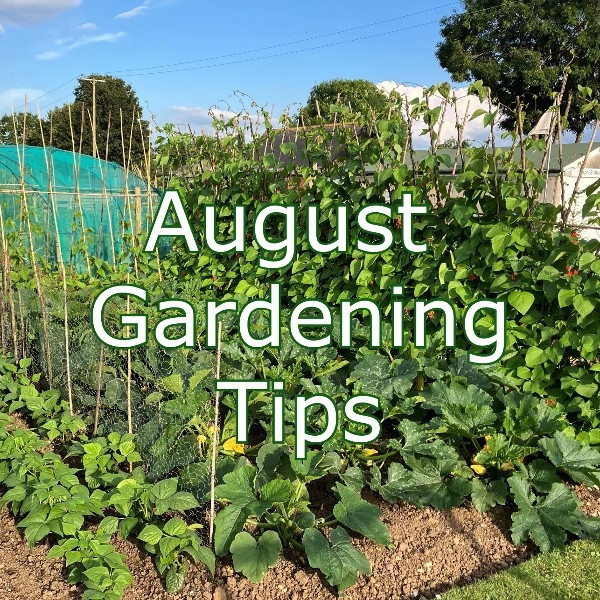
August can often be one of the busiest months, taken up by harvesting the various crops, plus preparing for future crops.
Read More
Andrew Tokely's Gardening Tips for July!
05 July 2024
July brings sunshine and many crops to harvest, as well time to hopefully enjoy the summer garden, but as always, we must also start looking ahead to next year’s display and a few autumn crops.
Read More
Heritage Seed Varieties
10 June 2024We have a range of heritage seed varieties available to buy. Some of these are old favourites listed by Vilmorin in his book ‘The Vegetable Garden’ published in 1885, others are varieties that were available in our early catalogues dating back to 1896-1898, and other heritage varieties which were in our 1928 catalogue.
Read More